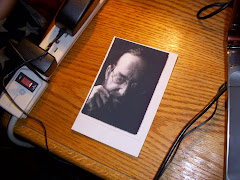Whirling in Teote
Part I: “At the Bottom of the Beanstalk” (655 words)
In 2000, when last a viejito in Glenwood’s Sister City for an extended stay, I saw minimal economic change—a bit more food--since the Contra devastations in the 80’s. From 1979 to 1990, almost every family lost sons, casas, farms and livestock, livelihood, in La Guerra. After “Reconciliation” in the 90’s, Teote, just ribs, hair and hunger at the end of the road, flooded with refugees, with international aid workers as well, Brigadistas. For ten more years, campesinos fared poorly, their pay for piecework in the fields just a meal, enough to make it ‘til morning. No cash. Too often, niños died of diarrhea, from drinking river water.
In 1998, Hurricane Mitch, seeing a bad situation, made it worse. Herds died from river-borne disease, when outhouses upriver cleaned out in the floods. Homeless vagas from Honduras, living in the forests by day, stole anything not nailed down in Teote’s lampless night. Without help from Glenwood and other Friendship Cities, plus, of course, the resilient joy of these magnificent people, Teote would’ve stayed a sorry wasteland. While other Nican cities writhed under global massage, especially after 9-11, Teotecacinte, the corn god’s kitchen, still held out its begging bowl, and no one here liked it, at all. The young men talked again of new revolt.
Now, a whirlwind of cash twists through this village of dust in the viento. Dinero comes in two ways: first, in pay envelopes from Cuban or Columbian cigaro plantations, in cahoots, of course, with Big Tobacco; and, second, from Western Union money-grams sent monthly by the prime of Teote’s youth, now working up north in the Land of Opportunity. These dolares, both blessing and curse, ring with charges of abuse and criminality, from both sides of the border.
Southside, tobacco men know well how to wring dinero from campesino poverty: for $.67 an hour, a peasant works a 48-hour week, without benefits, without redress, “at will.” This hourly pays for food, at local prices, for one, after overseers charge hefty kickbacks, off the top of the envelope, for lunch they do not serve. With little business, no industry, and no profit in growing corn, many villagers must pray, “This too shall pass,” in order to eat. Still, these envelopes, so meager with inflation, twirl each casa like dust devils on the campo. Since every centavo replicates twice before it’s spent on rice and beans, more cash-in-hand means pollo on every plate, plus a flock in the solar for huevos, and some, indeed, for sale. Campesinos are nursed on stories of turning dross to gold and water to wine, through cunning, magic, and la gracia de Diós. Especially here, so long at survival, eating’s been a daily crap shoot, with “The Man” in Managua, the only clear winner. Now, cellulars chime in a town still without landlines since the Contra cut them, in 1982. Portable TV antennas tune to Dallas-like novellas de los ricos. Best of all, thank God, there’s a bright, metal outhouse with a fresh-dug hole in every campesino yard.
Except for those living on the local rotgut, no one starves here anymore. The water’s potable and constant, while healthcare’s improving. However, the perfume of money doesn’t mask for long the stench of grinding exploitation, entrenched since the conquistadores here, at the bottom of Jack’s giant beanstalk. While little opportunity exists within Teote to shinny up higher to the castle, with few magic beans of capital and connection, visions of TV-land ‘s golden eggs shimmer aplenty, right in their eager faces. Meanwhile, the precious leaves they tend metamorphosize to puro primo, very long cigars, sold as Cuban art forms, though grown in Nicaragua by food slaves, to discriminating smokers in the finest hazy clubs, for $100 a crack, mostly for tiers of middlemen. The pennies dribbling from Big Tobacco just clink more falsely on a campesino’s second-hand plate, here in Northern Nicaragua.
Saturday, February 23, 2008
Subscribe to:
Post Comments (Atom)
















































































No comments:
Post a Comment